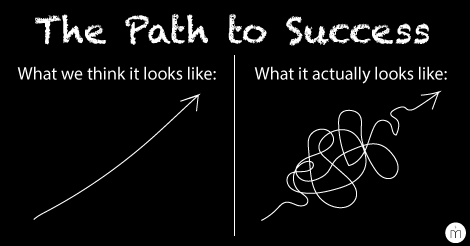This post was updated October 2019.
When I was in school, I remember how difficult the decision of when to apply to medical school was:
“Should I try to do it while I’m in the middle of my classes?”
“When would I take the MCAT? (Will I even have time to study?)”
“Am I sure medical school is the right path for me?”
“What will I do if I don’t choose to go directly into a program?”
There were so many questions and considerations that overwhelmed me. I decided that applying while I was in school was not the right thing for me to do, and that ended up being one of the best choices I’ve ever made (even though I had no clue if what I was doing what was right for me).Recently, the number of students entering med school directly from an undergraduate program (i.e. “traditional students”) has dropped significantly. It’s becoming more and more common for students to take “gap years” where they engage in everything from PhD programs to global aid efforts. In fact, only 1/3 of students enter medical school directly from undergrad, with the average age of med school matriculants1 being 24.
As this trend starts to become more commonplace, it begs the question: Why? Why are people taking time off before applying to med school? Let’s look at some of the best reasons to do so:
You can become a better version of yourself.
During my “time off” in between college and medical school, I had the opportunity to move to a new city by myself and start a new life. I began working in a research position in a young “up and coming” lab at the University of Chicago, where the work was much more demanding than any course or extracurricular activity I had been involved in previously. Out of necessity, I became much better at working efficiently, managing my time, and dramatically improved my interpersonal skills.
Because of the time I spent working before med school, I feel much more capable now, regardless of the task I find in front of me. And because of how much I grew in that job, my first year so far (comparatively) has felt much easier than working in the lab. Wouldn’t it be nice if more people (including you) felt like this?
With this in mind, perhaps the best advice I can give for maximizing your gap year(s) is the following: Don’t spend time doing things you think med schools want you to do. Instead, you should engage in activities that first and foremost make you a better version of yourself. If you invest in yourself, you will be more attractive by proxy to any program you apply to.
You can pursue your passions.
While it can initially be scary not to apply to a graduate program directly out of college, it can be very liberating. If you feel that taking a gap year (or many years!) is the right choice for you, then you have a wonderful opportunity to pursue anything you wish. Here at Harvard Medical School many of my classmates have taken gap years doing a wide range of activities (including things like art school or working as professional photographers).
There is no “cookie cutter” activity you must get involved in; rather, you must seize the opportunity to explore what you genuinely value. I spent a lot of time conducting marine biology research on the coast of Oregon before applying to med school (I studied the aggressive behaviors of shore crabs), and while it seems odd, what I learned through the experience helped me realize why I wanted to become a physician.
Along those same lines, I think we tend to forget how inclusive the field of medicine is. Art, politics, economics, global aid, sociology, psychology, literature, science, anthropology, and many more topics are all intimately tied into medicine because most everything in our world has implications on our health. Taking time for yourself before med school can give you the opportunity to explore and discover what it is that you love (and by extension why you belong in a medical program). Worst case? You might discover something you didn’t enjoy as much as you thought you would, which in its own right also holds much value.
You’ll have more to say in your interview(s).
In interviews, med schools can learn more about you in ways that an online application cannot capture. In my experience, more often than not, interviewers won’t ask “canned questions,” but will simply ask you questions that aim to discover who you are at your core. How you choose to spend your time during your gap year(s) can help you discover more about yourself so you will be in a better position to share what you’ve learned during an interview.
I personally can’t fathom going through the med school interview process without having the experiences from my gap years. What would I have talked about? Would I have been able to get into the schools I did had I not taken time off? Taking a gap year before applying to med school can be incredibly advantageous because med school admission committees are looking for students who are most in touch with themselves and their passions. Spending time after college can enable you as a prospective applicant to do exactly that!
You can set time aside to (properly) prepare for the MCAT.
Back when I was in college I remember trying to set aside time for MCAT prep; it was incredibly difficult to do, given my busy schedule (and again, this ultimately factored into my decision to take a gap year). Keeping the option of a gap year in mind, students can give themselves the opportunity to study for the MCAT without having the pressures of school or classwork. Poor performance on the MCAT can often stem from taking the exam under-prepared or flat out unprepared. Plus, the pressure of trying to apply while in college (when you are shorter on time) can increase the risk of this happening.
You can focus on your coursework.
Just as being in college can take time away from preparing for the MCAT and completing your AMCAS, the opposite is true as well. Med school applications (including taking the MCAT) can take away focus from your undergraduate studies. Of course, this means it will be more difficult to get the best grades possible (which are important for applications), but the cost of applying to med school during college can go beyond this.
There are often many opportunities made available to students during undergrad that will become less accessible if you are in the thick of applying to med schools (and traveling around the country interviewing as well). I myself worked in three different research labs during college (experiences that have been invaluable to me as well as to my applications), and know I would not have been able to pull this off as well if I tried to also build in time to take the MCAT and apply to med schools.
The Bottom Line:
While in the end it’s a difficult decision to decide what exactly one should/could do in between college and med school, I would strongly recommend that everyone reading this post take the time to seriously consider taking at least one gap year (or more).
In the two years before med school, I had the opportunity to grow as an individual, learn more about my passions, focus on taking the MCAT exam, and put everything I could into my applications, all without having to sacrifice my performance in my undergrad program.
While I undeniably believe that taking time off can make most anyone a more competitive applicant, don’t just make the decision for med schools: Do it so you can improve upon yourself as a person, and as a prospective physician.
Source:





